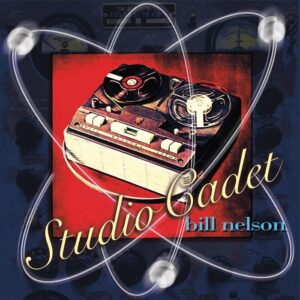3 Warn Against “Transparency In Music Licensing And Ownership Act”

The Content Creators Coalition (c3) sent a letter to the leaders of the House Judiciary Committee warning that consideration of H.R. 3350, the so called “Transparency in Music Licensing and Ownership Act,” would spark a backlash in the artist community and could derail the Committee’s work to create a consensus copyright reform legislation.
September 22, 2017
The Honorable Bob Goodlatte, Chairman
The Honorable John Conyers, Jr., Ranking Member
House Committee on the Judiciary
2138 Rayburn House Office Building
Washington, DC 20515
Dear Chairman Goodlatte and Ranking Member Conyers:
As an artist and songwriter-run advocacy organization, we write to express our strong opposition to H.R. 3350, the “Transparency in Music Licensing and Ownership Act.” Recognizing the importance of this issue to our constituents, this letter is signed by every member of our Executive Board.
The Content Creators’ Coalition (c3) strongly supports the Committee’s continual efforts to find consensus around broader copyright reform and to ensure that music licensing is more transparent, particularly to third party beneficiaries of recording contracts. There is little dispute among stakeholders that music licensing, in particular the licensing of musical works, is needlessly opaque. Publishers and record labels agree on this point, as do songwriters, performers and musicians, as well as music servicers and businesses who use music and musical works. There is clearly an opportunity for the Committee to find consensus on these issues.
However, H.R. 3350 does not further efforts to reach consensus – instead, it represents a one-sided approach that would fail to simplify music licensing. We are deeply concerned about the bill’s onerous registration system and financial penalty (forfeiture of statutory damages and attorneys’ fees) for songwriters or publishers who fail to register their works in a new database, created and run by the government.
As a matter of principle, an intellectual property right, like any other property right, should not be subject to forfeiture and the law should help creators understand and protect their rights – not create obstacles courses for them to navigate on pain of losing control over their creative work. This bill, by contrast, actually incentivizes the appropriation of creators’ work based on technical or other often innocent shortcomings, removing key deterrents that should discourage music services from doing so.
The record keeping mandates in the bill are voluminous and incredibly vague. Terms like “catalog number” are undefined and could mean a number of things. Other requirements are intricate, time consuming and in many cases, appear impossible to satisfy. How is an artist supposed to register every album on which one of her songs has been recorded, including recordings by other artists they may not even know about? If these requirements are time consuming and uncertain for successful and well-known songwriters and publishers, they will be impossible for independent songwriters.
Most importantly, the bill also thwarts the Committee’s to create a consensus copyright reform legislation. Both the “Fair Play Fair Pay Act,” creating a terrestrial performance right in the United States, and the “CLASSICS Act,” have support from music creators and digital service providers. While we respect the long standing and good faith efforts of Chairman Sensenbrenner to address these issues, H.R. 3350 only enjoys the support of businesses that use music and is so lopsided it would be a toxic “poison pill” in any copyright reform legislation effort.
We urge the Committee to reject H.R. 3350 and to press ahead at full speed with more genuine music licensing reform. Thank you for considering our views.
Melvin Gibbs, President
John McCrea, Vice President
Tommy Manzi, Treasurer
Rosanne Cash
Tift Merritt
Matthew Montfort
Jeffrey Boxer, Executive Director
cc: The Honorable Daryl Issa
The Honorable Jerrold Nadler
Source: https://www.facebook.com/ContentCreatorsCoalition


